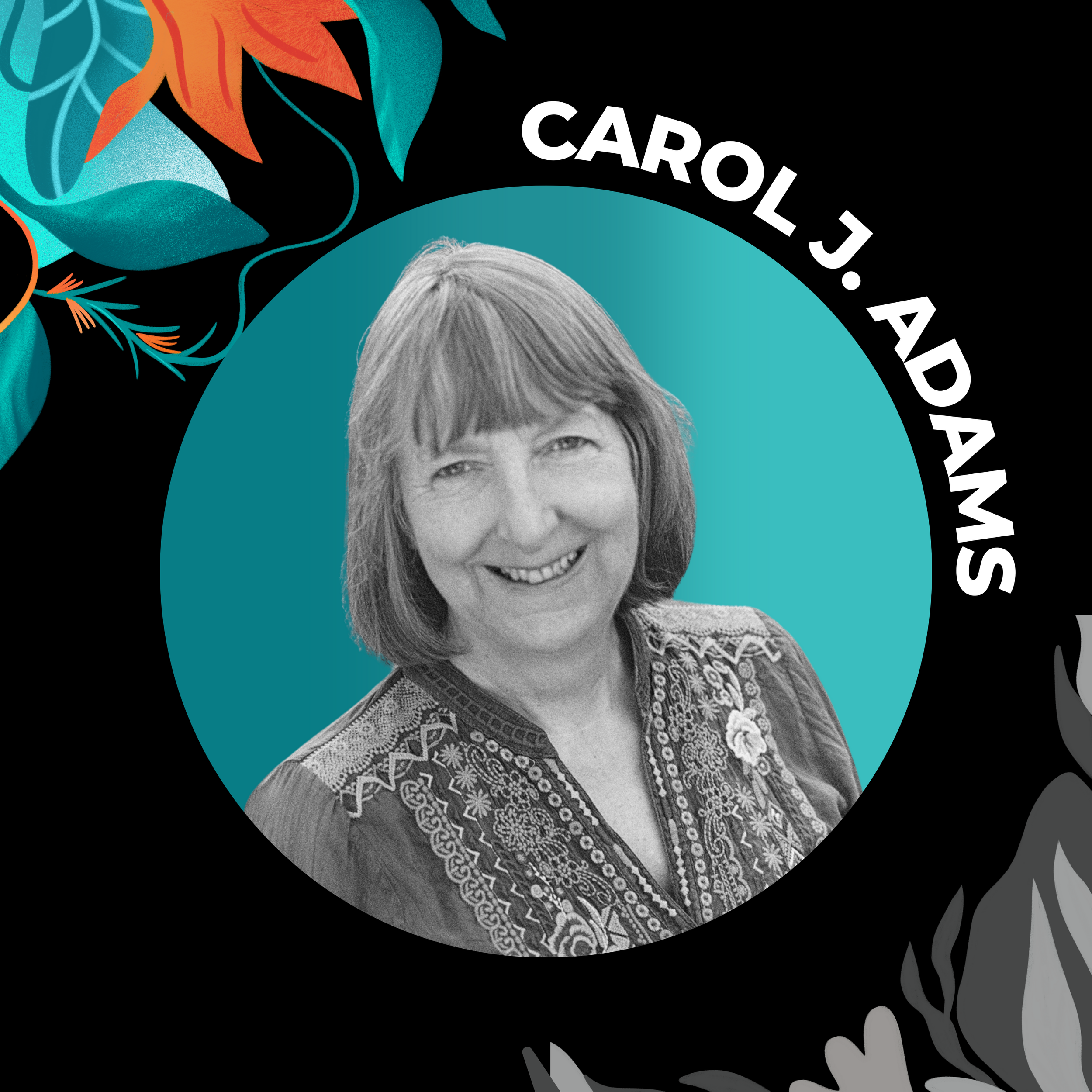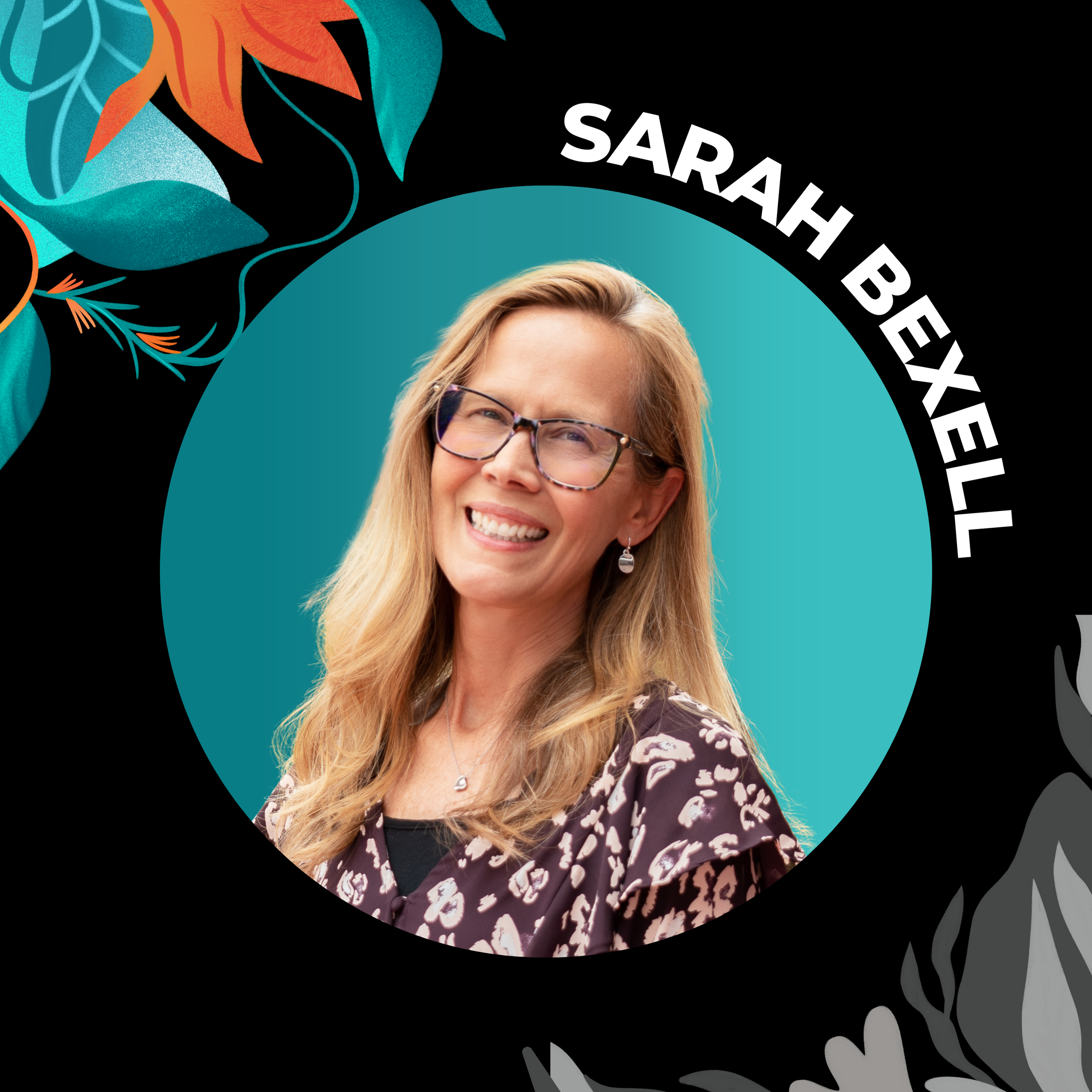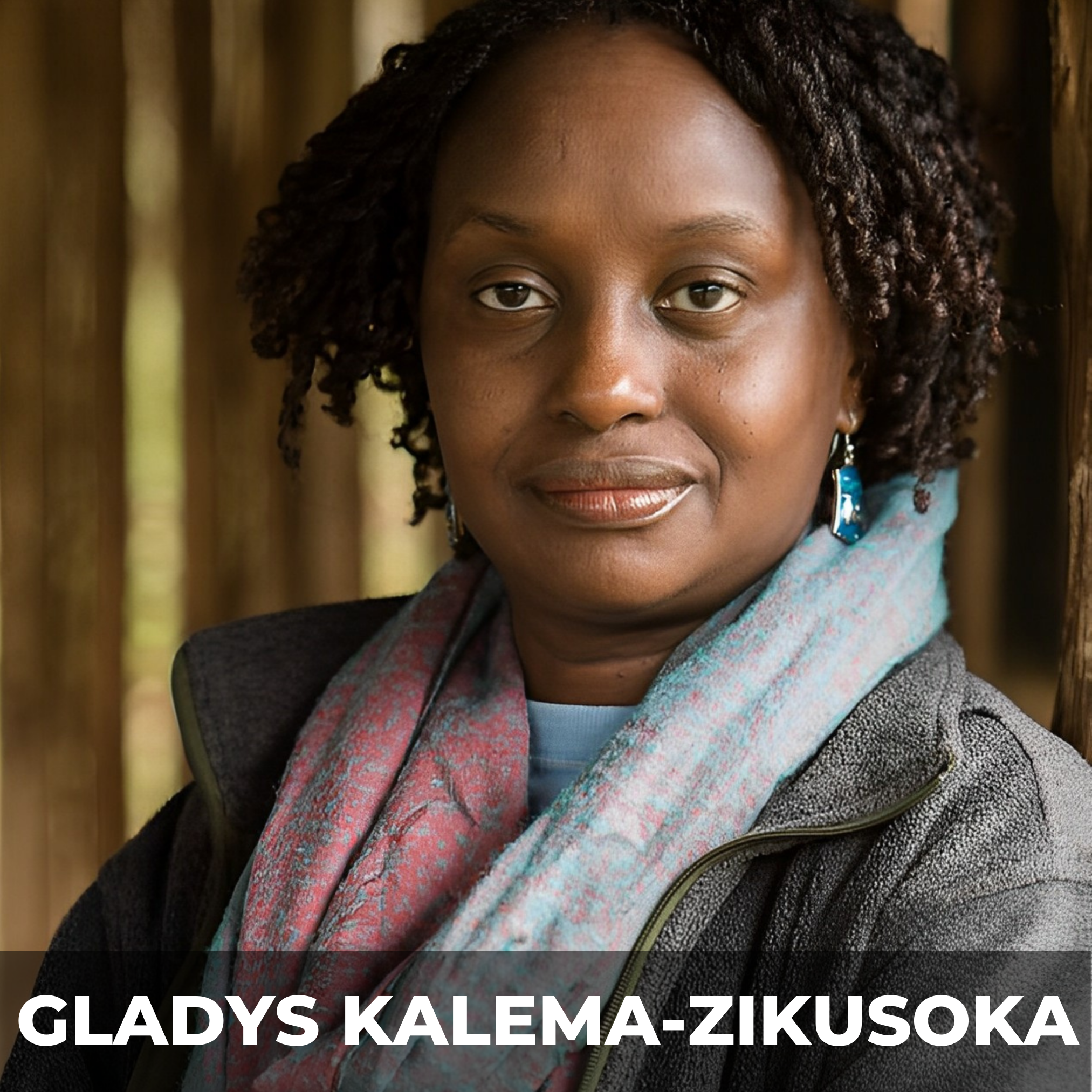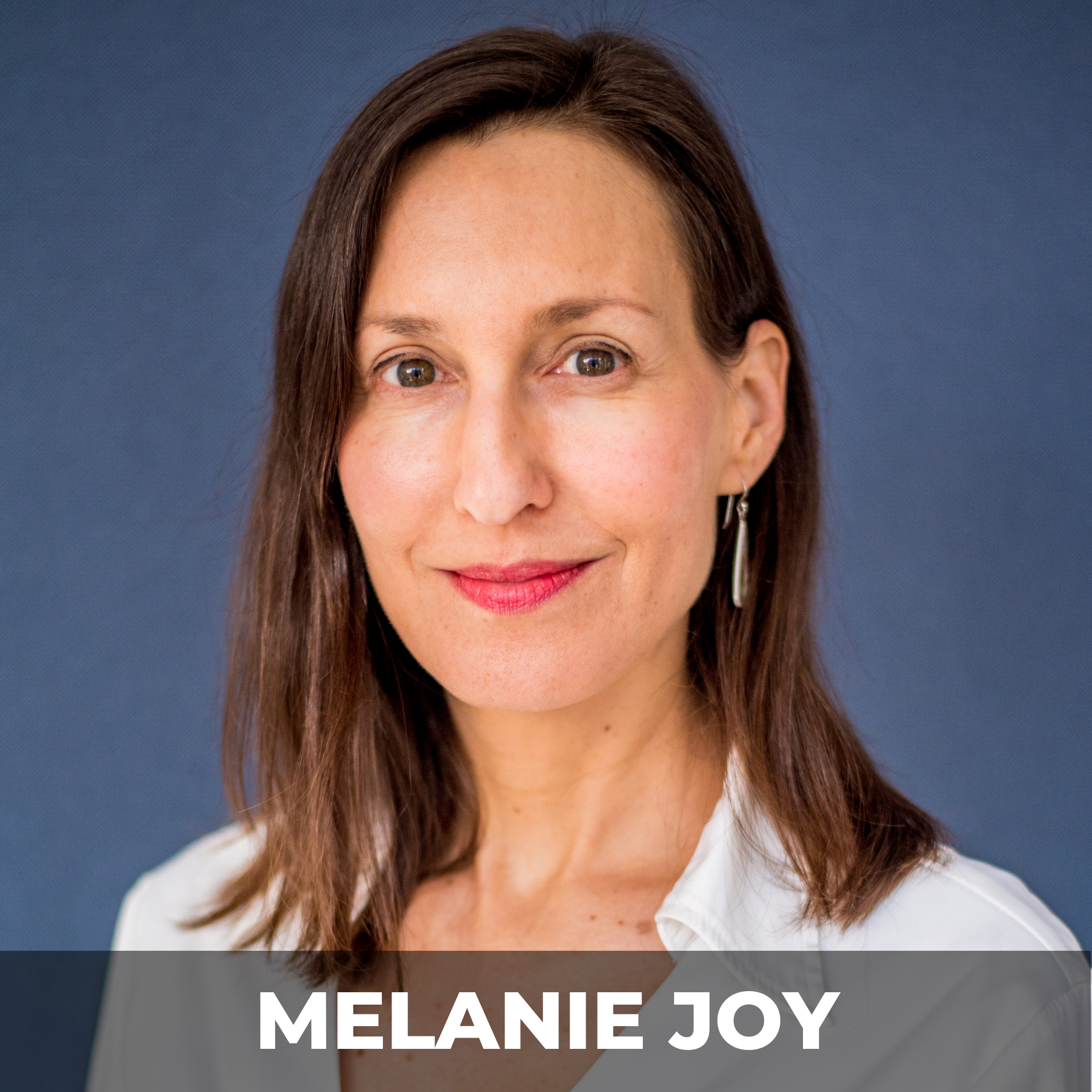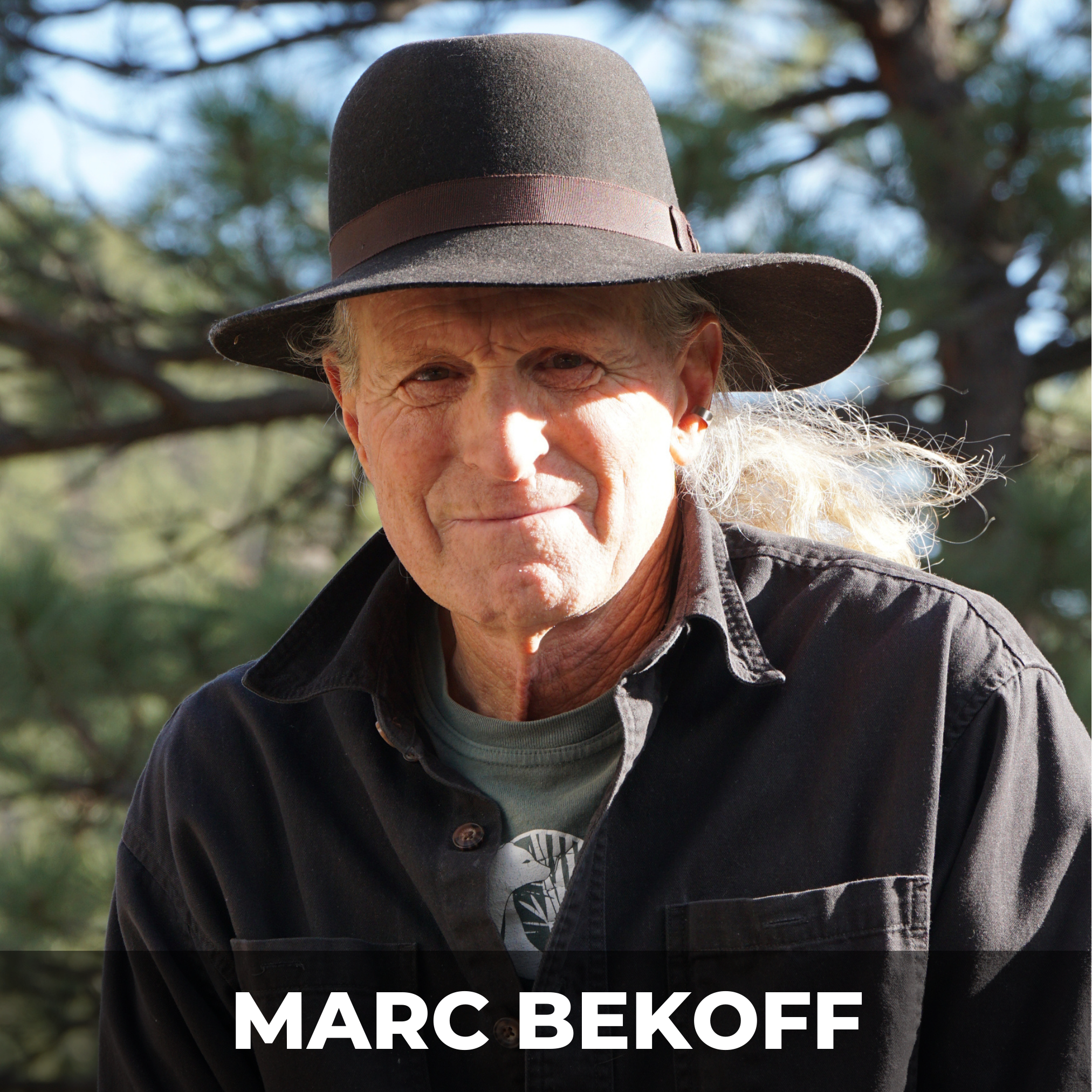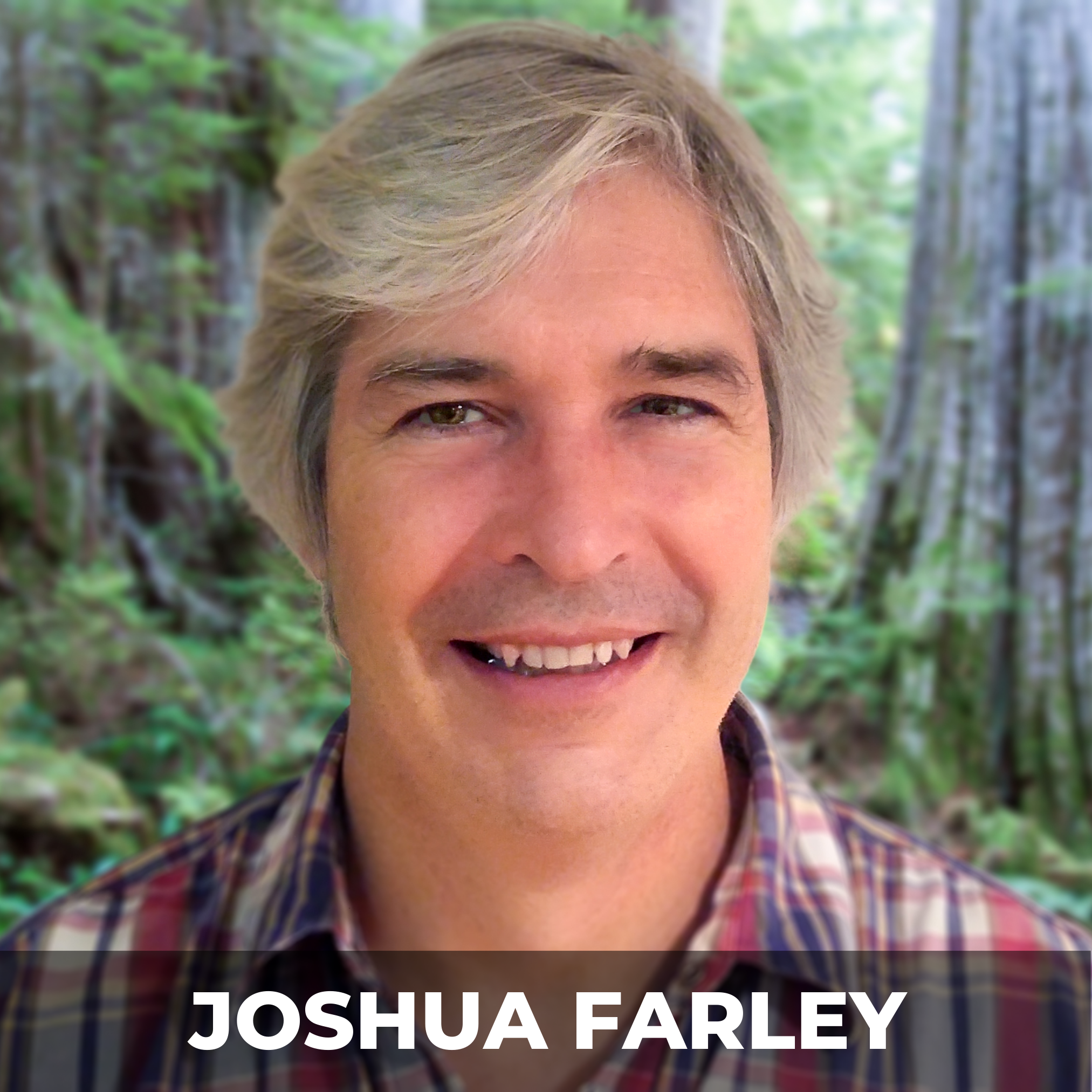Animals are Not Ours

Animals are not ours to eat, wear, experiment on, or use for entertainment. For International Animal Rights Day, we are joined by Ingrid Newkirk, co-founder and President of PETA, the world’s largest animal rights organization. Highlights of our conversation include:
The formative experiences that inspired Ingrid to co-found PETA and dedicate her life to animal liberation;
PETA’s groundbreaking campaigns that include both bold, confrontational activism as well as behind-the-scenes deliberation and negotiation;
Major victories of PETA in transforming industries like food, fashion, experimentation, and entertainment to reduce animal suffering and the challenges that remain;
Ingrid’s thoughts on global overpopulation, pronatalism, effective altruism, and the power that all of us have to help end animal suffering.
MENTIONED IN THIS EPISODE:
-
[00:00:00] Ingrid Newkirk: I also find so often that people are afraid to embrace animal rights, animal liberation, that human supremacism is so strong that people are saying, oh, no, no, no, you can't say that now, while such and such is happening to another set of human beings. Let's have an all encompassing view, a big piece of compassion pie and not be so worried about the hierarchy of suffering.
[00:00:28] Suffering is suffering. Exploitation is exploitation. Let's face it.
[00:00:33] Alan Ware: In honor of International Animal Rights Day on December 10th, we're joined in this episode by Ingrid Newkirk, co-founder of PETA and a trailblazer in the animal rights movement. We explore how under her bold leadership and activism, PETA's provocative campaigns, undercover investigations, and legal advocacy for a more compassionate world have reshaped the global conversation around animal rights and protection.
[00:01:06] Nandita Bajaj: Welcome to the Overpopulation Podcast, where we tirelessly make ecological overshoot and overpopulation common knowledge. That's the first step in right-sizing the scale of our human footprint so that it is in balance with life on earth, enabling all species to thrive. I'm Nandita Bajaj, co-host of the podcast and executive director of Population Balance.
[00:01:29] Alan Ware: I'm Alan Ware, co-host of the podcast and researcher with Population Balance. We are proud to be the first and only nonprofit organization globally that draws the connections between pronatalism, human supremacy, social inequalities, and ecological overshoot. Our mission at Population Balance is to inspire narrative, behavioral, and system change that shrinks our human impact and elevates the rights and wellbeing of people, animals, and the planet.
[00:01:56] And now on to today's guest. Ingrid E. Newkirk is the president of PETA, People for the Ethical Treatment of Animals, which she co-founded in 1980, and is now the largest animal rights organization in the world. She has spoken internationally on animal rights issues from the steps of the Canadian Parliament to the streets of New Delhi, India, and has spearheaded huge victories for animals, including ending all crash tests on animals by car companies internationally and securing the first felony convictions of factory farm workers. PETA's landmark victories for animals, including the first ever police raid on a laboratory and convictions for cruelty to animals in the meat industry, as well as the media attention that accompanied them, have led to a huge change in public attitudes. And the victories keep coming.
[00:02:42] PETA's work continues with campaigns that include calling on fashion houses to stop selling reptile skins, pushing for life-saving reforms in the horse racing industry and fighting the monkey to laboratory pipeline. Ingrid has authored over a dozen books including Animal Kind: Remarkable Discoveries About Animals and Revolutionary New Ways to Show Them Compassion, and been profiled by the New Yorker to Los Angeles Times and Fortune, which dubbed her the 'Mother Teresa of Rabbits'.
[00:03:12] She was also the subject of HBO's award-winning documentary, I Am an Animal, and was named one of Forbes 100 Most Powerful Women. And now on to today's interview.
[00:03:23] Nandita Bajaj: Hello, Ingrid, and welcome to our show.
[00:03:26] Ingrid Newkirk: Hi Nandita, I'm very pleased to be here.
[00:03:29] Nandita Bajaj: And Ingrid, we know you just celebrated your 75th birthday. Happy belated.
[00:03:34] Ingrid Newkirk: Thank you, now I'm 75 and a half.
[00:03:37] Nandita Bajaj: We're thrilled to have you with us today, Ingrid, to discuss your incredible journey in advocating for animal rights. As the co-founder and president for People for the Ethical Treatment of Animals, PETA, which turns 45 next year, your pioneering efforts have reshaped the conversation around animal liberation on a global scale.
[00:04:01] And though we know that most people will have an opinion about PETA, the organization's bold and often provocative strategies have brought unprecedented attention to the plight of animals globally, making PETA almost single handedly responsible for bringing attention to animal rights around the world.
[00:04:22] And we're eager to dive into your insights on the progress made and the challenges that remain in the fight for a more compassionate world. So Ingrid, to begin, could you share with us what were some of the life experiences through childhood and young adulthood that shaped your commitment to animal rights and justice, ultimately leading you to co founding PETA?
[00:04:46] Ingrid Newkirk: Oh, Nandita. Well, I think I was born caring about animals. But like most people, I didn't connect the dots properly. So in my animal loving family, we ate animals, we wore leather shoes. I had a fur coat when I was 19, went to the circus, always chose to ride a horse or a camel or even an elephant in India as a child at a birthday party because I loved them.
[00:05:14] And of course, now we know a lot of that is possession, a lot of that is showing love in the wrong ways, because the biggest show of love I think you can make for animals is to leave them in peace, let them be, let them be themselves, and if they're in trouble, then help them.
[00:05:32] But I did have a lot of experiences as I was growing up, particularly in my twenties when I became a law enforcement officer. And I went on to a farm as one incident and found a pig who was the only survivor after people had moved away. And they'd abandoned all the animals. Most were dead, all of them except this one. And I held him in my arms. I took him out to the water pump, held his head up, let him drink, and he was so grateful.
[00:06:03] And then that night, when I was driving home, and this was before the days of microwave ovens, I thought, oh, I wonder what I have for dinner. Oh, good. I defrosted those pork chops. And suddenly the light bulb came on and I thought oh gosh, not gonna eat any pigs anymore because all of us know in our hearts, in our heads, that a slaughterhouse is no way you would ever wish any living being to end up.
[00:06:32] So, here I was going to prosecute these people for cruelty to a little pig, and here I was actively participating by paying someone to be cruel to another pig I'd never met.
[00:06:44] Nandita Bajaj: I appreciate that. I think for all of us, it's the connection to a personal complicity in animal abuse and exploitation to what we're seeing, you know, in all other forms of oppression outside and fighting for is what has led to making that change within ourselves.
[00:07:03] And we've spoken to so many philosophers and anthropologists who see animal exploitation as the gateway to exploitation and creation of hierarchies among humans. Not that it didn't exist before, but it definitely exacerbated and institutionalized it, because we had already made that pathway to animal oppression and the othering of the nonhuman.
[00:07:28] Ingrid Newkirk: Yeah, I also find so often that people are afraid to embrace animal rights, animal liberation, that human supremacism is so strong that people are saying, Oh no, no, no, you can't say that now while such and such is happening to another set of human beings. And it's one of the areas where you see this a lot and you see it everywhere is with feminism.
[00:07:53] I'm a feminist for God's sake. I'm a woman. I don't like oppression. I'm not a feminist just because I'm a woman. I'm a feminist because I'm against needless violence, needless exploitation, bias, bigotry, all these things. And yet some women will say, oh, you can't say that a dairy cow is raped. I say, well, what else are you going to call it?
[00:08:18] Look it up in the dictionary. And when a man, it's always a man, it could be a woman, but it's always a man, sticks their hand all the way up to the elbow in an animal's rectum, feels for the uterus, and then sticks in a syringe to take sperm that they have already artificially ejaculated from a bull, that's rape.
[00:08:40] And they know it is because they have to hold her head still. They sometimes use what's called a twitch, which is a pin on their nose, to provide pain if they move, so that they stand still. That's right. So, why we would have to say, No, no, no. Rape of a human female is sacrosanct, you can only call it rape if it's a human female.
[00:09:03] Open your heart, open your mind, look at the definition. Know that no individual wishes to be raped, and let's have an all encompassing view, a big piece of compassion pie, and not be so worried about the hierarchy of suffering. Suffering is suffering. Exploitation is exploitation. Let's face it.
[00:09:24] Alan Ware: Yeah, we really appreciate that you appreciate the fact of human overpopulation and that you're one of the relatively few people in the animal rights movement who have spoken out directly about it and the cause of human overpopulation and animal subjugation.
[00:09:41] You even decided to get sterilized in your early 20s partly due to your concerns about human overpopulation. So what led to that awareness as a young person of the dangers of human overpopulation?
[00:09:53] Ingrid Newkirk: I guess I was just lucky, Alan, that I tweeted it early, I figured it out early because I think we are, many of us, just drawn in to do certain things that society expects of you. And you don't question so many things. And one of them is having a child. It just seems natural. There's a lot of parental pressure quite often with them saying, when are you going to have a child and so on. My mother was devastated when I told her that I was not going to have a child. I've always believed in adoption, and I actually believed in adoption of human beings before I understood it in other species.
[00:10:33] Of course, we say, please don't breed cats and dogs. Don't go to the breeder or the pet shop. Go to the shelter. There are orphans. There are unwanted. They are dying, literally, for a home. Before I figured that out, which took experience in the animal sheltering world, I had already seen orphanages in India. I had seen children on the street begging and I thought how wonderful it would be if anyone with resources, anyone with a loving home, anyone with anything to offer, would take them in. And so I thought, no need to have your own mini me. I know that some people have made their mini me before they've even thought about it. I don't blame you. It's just a natural thing. But if you really think about it, have a choice and can say, well, that's it. I'm going to adopt now.
[00:11:25] Alan Ware: Right, we appreciate your PETA initiative in 2011, offering to give vasectomies to pet owners who get their pets spayed or neutered. That was an excellent campaign.
[00:11:37] Ingrid Newkirk: Yeah, free vasectomies for any, well, you know, Alan, we have this problem with a lot of men, whereas they won't think of other animals in the same way in many respects. Like I feel pain, but they don't. They're stoic or whatever they, cockamamie idea they have, is when it comes to being castrated, men have the real heebie jeebies.
[00:12:02] They do not want to do that to their dog or cat. And you have to say, hang on, it's not you, it's them, and you don't let them go out and have sex wherever they want to. They are frustrated, they're at home, they're on a chain sometimes. And if they go out like a cat, they get beaten up by other males and they have abscessed ears and what have you.
[00:12:28] Get a thought in your head that this is not you. We're not castrating you, but we will give you a free vasectomy if you want one.
[00:12:36] Nandita Bajaj: As you know, Ingrid, from some of the work that you've seen from our organization, we try to shed a light on pronatalism as a form of oppression, as a form of indoctrination that prevents people, you know, especially women from being able to make those authentic choices for themselves.
[00:12:54] And like you said, you came to that early, whether it was luck or insight or experience, as you said, from seeing so many suffering children. It is really great that you did make that connection.
[00:13:07] Ingrid Newkirk: Society has shifted from the days when women were only in the bedroom or in the kitchen, and when their purpose in life was to reproduce. I mean, I go to countries, especially in the Middle East, where I see women have no rights whatsoever. And we've just heard that was it in Afghanistan that said your voice, if you're a woman, can never be heard on the street, can never be heard outside the house. You cannot sing, you cannot talk. I mean, we have to know that we're very, very lucky here that we can say, I am voluntarily childless.
[00:13:43] And it's because I'm thinking about it and I know that's what I want to do and what I consider the right thing to do. So many places all over the world, women don't have that right to be independent, to be whole without having a child.
[00:13:57] Nandita Bajaj: And you can see with the regression within the United States, so many women now are threatened with having their reproductive rights taken away because a lot of people, politicians and economists, think that women choosing to have fewer or no children is a threat to patriarchy and to nationalism, right?
[00:14:19] So they are pushing for abortion bans so that they can force people to have more children. And you made that connection earlier through the sexual exploitation of animals and the sexual exploitation of women. I mean, that connections have been made, you know, so many times. It's too bad some feminists are not seeing that, but there are other leading feminists like Carol Adams who wrote the book, The Sexual Politics of Meat, who made that exact connection of patriarchy and these structures of oppression.
[00:14:51] Ingrid Newkirk: Before Carol, there was a wonderful woman called Connie Salamone, who is in the first animal liberation, women's liberation collective in New York. And I think it was Connie who said, I can't talk to you about women's liberation as long as you are chewing on the bones of a small tortured bird. It's just like, make the connection, will you?
[00:15:18] It shouldn't always be about ourselves and the narrow way we are defined. I always joke and I say, you know, I'm 5'6", I won't talk to anybody or defend the rights of anybody who's 5'5". These arbitrary distinctions. And I mean, when we talk about The Handmaid's Tale, for example, and people are up in arms rightly, at being treated that way as a human female.
[00:15:45] The Handmaid's Tale, my goodness, I mean the cow running after her calf who's being dragged away at just a few hours of age so that he can become veal and we can have dairy pizza cheese. I mean, really is, does that define what we're about? Is that we can't say no to cheese? Somebody once said to me when someone says, Oh, I could never stop eating cheese, you say, why don't you substitute the words, I could never stop being cruel to animals or being cruel to a mother cow.
[00:16:22] Nandita Bajaj: Yeah, we agree. I mean, people come to these realizations, different points in their lives, but I think the number of excuses, the mental gymnastics, as Melanie Joy calls it, that people use to defend carnism is, quite incredible.
[00:16:39] And our institutions, all different institutions, promote and uphold that. You have to do so much work to escape the human supremacist worldview. And I think with the kinds of work PETA has done for 45 years now, you've really helped change that global conversation and you've really helped bring that to the forefront.
[00:17:02] So you co-founded PETA in 1980. And from the outset, PETA got noticed through its use of provocative, attention-grabbing activities such as undercover investigation, exposing animal cruelty, public protests, and shocking publicity stunts including famous campaigns like, I'd rather go naked than wear fur, which quickly brought animal rights issues into the public spotlight.
[00:17:28] But alongside these more provocative tactics, PETA has also used a host of less noticed negotiation and legal strategies with scientists, lawyers, and other professionals working behind the scenes to influence corporate and government policies and secure legal victories for animal rights. We're going to get into the success of these different approaches in a few minutes, but first, could you share how you decide when to use confrontational methods versus when to use education, negotiation, or legal actions?
[00:18:01] Ingrid Newkirk: We're using them all at the same time, except corporate negotiations, government liason, that kind of thing's too boring for the press to ever talk about. So what they want to talk about is somebody taking their clothes off or somebody blocking a store entrance or that kind of something silly, something humorous, something edgy, and so on.
[00:18:24] So, we've got to keep the spotlight on the issue, and we do that by making these gimmicky, provocative things happen. I mean, we do really things that people shake their heads at and say, oh god, it's PETA again. And it's us saying, why don't you change the name of your town from Tempe, Arizona, to adding an H and making it Tempeh, Arizona, like the food?
[00:18:49] And people think, oh, haven't you got anything better to do? But yes, we do. We're busy doing it. We always write to a corporation or a fashion house, a couturier, a government agency, and say, look, we've got 19 scientists, for example, on stuff in all kinds of disciplines and we can help you find the alternative or we already have it to whatever you're doing.
[00:19:15] We have fabricators who are doing material innovation, instead of fur and wool and leather and feathers. I mean, we can provide you with something that's lightweight, that's chic, that's fashionable, that's practical. So we do all that work. But if they slam the door in our face, If they don't meet, if they don't care, then we escalate because we're not going away.
[00:19:41] And we know that they need to stop what they're doing that's harming animals and killing them. So, yes, we're in board meetings, we're shareholders trying to bring resolutions that will change behaviors and practices, but we're also agitators in other ways that are more obvious and therefore more press worthy.
[00:20:00] Alan Ware: And you kind of need to agitate. If you don't have the legal means, you have public opinion, right? And you have to garner public opinion and get that behind you to put pressure on them, otherwise you don't have anything to use against them, right?
[00:20:15] Ingrid Newkirk: You're exactly right. And I always think that change begins, what I say, at the bus stop. It's the person who's standing waiting for the bus who's going to change everything in the end. Because you have to have the strength, the rising interest from the public. Public buys everything. They feed themselves, they wear clothes, you know, they buy things at the store, cosmetics, toiletries. They are the movers and shakers.
[00:20:39] And the industries only cater to them. So their spending dollar, the power of the purse, is what counts. So you do have to get people on board. The only reason we have any laws is because the people have spoken. And we have very scant laws because people do not know how to push things through when there are mega industries, big pharma, all pouring money into politicians' pockets, and so politicians don't go any other way.
[00:21:08] But when there's enough of an uprising, then change comes. So yes, we use the law when we find it. We've had some, not only Roe v Wade, but we've had some other horrible laws that have been put down because of conservatism in the courts. There's one way in which you can bring a lawsuit just because you have suffered financial damage, but you cannot anymore bring it because you decided that you were going to campaign against something, so you expended funds.
[00:21:38] It has to be something that happened naturally, not a decision that you made. That was called Havens Realty. It was a wonderful way for us to bring action against abusers. And that's gone. So we do use everything we can.
[00:21:53] Nandita Bajaj: We are seeing, for example, there was a recent report from the Global Witness saying there's two to three hundred environmental defenders who are being killed annually. We are also seeing globally that legislation is increasingly being used to stifle both environmental and animal rights protests and direct action tactics, whether it's through harsher prison sentences or bans on particular forms of protests and, or whether it's by labeling folks such as these advocates as extremists or terrorists.
[00:22:26] So I feel like if the governments are so much in bed with these large organizations, then what other options are there, if not for civil disobedience of some kind?
[00:22:38] Ingrid Newkirk: And Nandita, it's funny that we're in the United States of America, and people are sometimes afraid to speak up about even simple things. And I think, my goodness, you could be in a country where they pull out your fingernails, hang you upside down, or execute you for saying something.
[00:22:56] You are squandering your voice. You are squandering your power. You have freedom of speech. Somebody may argue with you, who cares? Someone may throw out counter arguments, which I think are always good, because that gives you insight into what is holding them back, and you can address that directly. Or you might be ostracized in some way.
[00:23:20] There have been people who've lost jobs. I always remember the man on the bus, the bus driver, who started to hand out vegan coupons or refused to hand out McDonald's coupons and was fired. I mean, he bought a civil suit and he was reinstated. Things like that happen.
[00:23:38] There was a veterinarian at UC Davis who was denied tenure, because he would not buy beagle dogs from a breeder, give them eye injuries, and then have his ophthalmic students fix the eye injuries and then kill the dogs. Instead, he found people on a fixed income, elderly people who had dogs who didn't have the money to treat them for their eye injuries, and he fixed them free of charge, showed his students, and gave them back.
[00:24:09] And they denied him tenure. We joined with him, we sued the university, it was a UC university, and he won. He got tenure and he got compensation. You must never be kowtowed into stifling your ability to live the kind of ethical life you want to live. Never want to live, be on your deathbed looking back and thinking, Drat, I wasted my time on Earth, and I could have said something then. I could have done something then. We have the luxury of that, and we must use it.
[00:24:42] Nandita Bajaj: Yes, we're totally with you on that. That's the obligation that we have with our privilege, to speak up for those who can't. And Ingrid, on the topic of controversial tactics, there have been feminist objections to some of the campaigns, such as the Naked Fur campaign, 'I'd Rather Go Naked Than Wear Fur', and those targeting anti-abortion advocates with Pro Life, Go Vegan. There's a concern that these tactics perpetuate the objectification of women and undermine reproductive rights while addressing animal exploitation. And while we appreciate PETA's commitment to animal liberation, given that we do establish that these are connected oppressions, we do sympathize with these concerns and wonder how you respond to these objections.
[00:25:32] Ingrid Newkirk: Different waves of feminism. And there came a time, during Carol Adams time I think mostly, that that wave of feminists got all up in arms about, uh, having naked women use their bodies. They use their own bodies, it's their prerogative to make a political statement, like, I'd rather go naked than wear fur. And I just think, how dare you?
[00:25:55] Although I try to be nicer and think more kindly about it, how dare you tell me I have to cover my body? I'm 75. Five years ago I did a naked demonstration at a slaughterhouse in London, hanging on a rack with dead pigs, to show that my skin and their skin was the same, that we're almost the same size.
[00:26:17] Those things are trying to make the connection. So I don't think we live in Afghanistan. And I'll be damned if I'll have some man, especially, or some woman, shamefully, tell me, Oh, no, no, no, there are certain parts of your body you can't show because it objectifies you. My body and every single person who participated, it was their body.
[00:26:43] Like Lady Godiva, they decided I'm going to make a political statement with what I've got. And what I've got is this. It's arbitrary, really, when you come to think of it. You might want to say, cover your ears, or in Iraq, cover your face. Don't even show your eyes or your shins. And I think, no, we're in the United States of America. We're in Europe. We're in the places where we won't be oppressed by a brother or a father or a husband or a boyfriend telling us, Cover up. It's up to men to control their instincts, and it's up to women to say, Don't you think of me that way, because I'm making a political statement.
[00:27:24] The other thing you mentioned, though, was 'pro life, go vegan'. We try to reach everybody with all issues. So we have pro choice, choose vegan, pro life, choose life and go vegan. It's just for everybody to try to save these animals who are being ground up by people who think I'm religious or I'm ethical and who are, but haven't made that connection that brings more into the fold than just the ones they're concerned about.
[00:27:56] Nandita Bajaj: In some ways I see you shining a light on the psychological blocks that people have, especially with like the pro life campaign, because you're right, in some ways it just kind of makes you think, not that we'd support. supporting pro lifers and the taking away of reproductive rights, but if it's really being done to provoke making those connections, you know, I can see that as being an effective tactic.
[00:28:24] And you're right. I mean, it does come down to different waves of feminism and different philosophies that people abide by. And I do get your point about using our privilege in whatever way necessary to shine light on all forms of oppression.
[00:28:39] Ingrid Newkirk: You know, what's funny Nandita is that people were never naked. I was naked hanging in the Smithfield market, but for the fur campaign, no one was ever naked. It was just a slogan. They always had something in front of them or some underpants on or whatever it was. And of course we had men do it too. And nobody said a word about them.
[00:29:03] Alan Ware: So yeah, talking, well, different views of the choices we have as humans to get involved in these issues, especially in a country like America, that we have a lot of choice to how we express that, nearly all of us can agree on animals are truly voiceless and the human dominated world. In the second part of your recent book, Animalkind, you emphasize all these practical ways to show greater compassion towards animals. And the PETA website highlights that in their mission statement by stating, animals are not ours to experiment on, eat, wear, or use for entertainment. Could you speak to each of those four areas and some of the major victories PETA has had, what challenges still need to be addressed?
[00:29:46] Ingrid Newkirk: I can start first by saying, you know, I've always thought, and we do, we call animals voiceless, but actually they're all saying a lot and they have their own languages which they use among themselves. In fact, just recently there was a wonderful article about the complexity of bird speech and that we are reluctant to call it speech, but they make sounds to their eggs in the nest. They talk to their chicks.
[00:30:13] Chicks hear a sound and if it's a warning that a snake is coming, they flee the nest if they're able to. But if it's a sound of warning that a hawk is coming, they'll crouch down. And we now know it's our fault that we cannot interpret what they're saying. They don't have the ability to speak our language and we don't have the ability to understand theirs, but the complexity of language from elephants rumbling subsonically, mice speaking subsonically, birds speaking at a frequency that's too high and too fast for us to hear, it's us again. It's the human pompous people who think that, hey, we have language and we can communicate.
[00:31:00] No, no, no, they all do. But to get to your point, your big question, animals in experimentation, back from the Roman times, probably before all the poisons or the suspect food was given to animals, we don't have to do any of that stuff anymore. We don't have to, and we should not be funding these psychology, these curiosity experiments on animals.
[00:31:24] We have mass spectrometry. We have whole human DNA on the internet. We have high speed computers that we can program with human data. We have in vitro cell systems. And yet, in the laboratory, we still have people like one Elizabeth Murray, for example, planting electrodes in monkeys heads, keeping them in boxes barely bigger than their own bodies, sleeping on metal, scared of the turning of the doorknob.
[00:31:53] It just has to go. Food! Go to the supermarket, stand for 10 minutes, staring at the different array of plant milks, and deciding if you want macadamia, almond, soy. What do you want? Rice milk? Oat milk? It's just a luxury. There's nothing, no taste, that you can't get today. From foie gras, caviar, fake shrimp.
[00:32:16] If you really are stuck on that taste, we have it in vegan versions. So there you are. And clothing, we've come a long way. We don't need to skin animals and wear their hide and their fur and their wool. It belongs to them. It's theirs. It's not ours. And we have amazing fibers and fabrics that whatever we want to look like, practical or chic, it's there for us.
[00:32:43] Entertainments, we've got the internet, we have virtual reality. You know, you don't have to go to Africa and shoot a lion. You don't have to go to a rodeo, you know, lasso a cow. I mean, these are all primitive things we used to do. And today we have all the options in the world at our fingertips. So what are we waiting for?
[00:33:05] Nandita Bajaj: Yeah, I love you've encapsulated that really well, both the exploitation and the alternatives and reasons why really there's no reason to be engaging in these practices anymore. And just the fact that we used to engage in them is not a good justification to continue engaging in them.
[00:33:23] And Ingrid, you spoke a little bit about the different methods that you use to help change both public opinion but also legal and educational advocacy that you do. Could you speak to some of the major victories that PETA has had in any or all of these four areas?
[00:33:43] Ingrid Newkirk: Well, we have victories of some sort or the other almost every day now, because we attack things with such persistence. And people know that we won't leave them, we won't drop them. But yes, we've had major victories in the world of experimentation.
[00:34:01] We should have eliminated it by now, but it's such a gargantuan industry, with the cage manufacturers, the feed producers, the animal suppliers, and the people who are on a career path, and with no one tapping on their shoulder to tell them you're not finding anything, do something else. There's technology.
[00:34:19] So we have stopped, for example, NASA sending animals into space. We've stopped pigs and baboons being crashed in car tech and crash helmet tests. We have managed to change things at the EPA, the Environmental Protection Agency, on the testing of drugs, which to a certain degree now are done in vitro without mice and rabbits and guinea pigs and so on.
[00:34:41] In the food industry, we have had some luck, I think 19 states so far, in overturning these draconian but recent laws that they have tried to introduce that would make it a felony for someone to take a photograph on a factory farm or in any animal enterprise. Enterprise is a very telling word in a laboratory or in a slaughterhouse, even if what the picture shows is illegal activity on the operator side.
[00:35:14] So we've had luck there. We've of course been to, I think fur really is dead now. I don't think any young people want to wear it, but we have managed to most recently Victoria's Secret, which used hundreds of thousands of feathers from ostriches and chickens in its show. No more, all gone after negotiations with us.
[00:35:37] So all the fashion, major fashion houses we've been working on showing them our undercover footage of snakes being blown up with water hoses before they're skinned for a belt or a shoe, of crocodiles and alligators having a metal spike pushed down their spine to kill them while they're fully conscious and saying why would anyone buy an Hermes or Gucci handbag made from a quote exotic skin.
[00:36:06] We have got leather banned from many fashion shows. Angora, we've decimated that industry after showing the suffering of rabbits in China. So lots of things we're just pushing forward.
[00:36:19] Nandita Bajaj: Yes, absolutely. And I think those are the things that don't always make it into the news. As you say, the media is not interested in the boring legalities of the changes that are being made in huge swaths.
[00:36:31] It's almost every day that you're seeing one of these victories. And I think it's probably obvious to a lot of us and our listeners, but the challenges that remain ahead for all of us animal advocates, they are huge. But from your point of view, what are some of the bigger challenges that still need to be addressed and that PETA is currently working on?
[00:36:53] Ingrid Newkirk: We do need everyone's help in this because it is a political issue. And that is that the National Institutes of Health, the NIH, takes in billions with a 'b' of taxpayers dollars every year to do extraordinarily cruel and absolutely pointless things to animals. So called medical research is just a tiny fraction of what they do.
[00:37:17] And the fact is, as surveys show, some 96 percent or even higher of tests on animals do not result in a good medicine or procedure for human beings. That's why you see all these disclaimers on television, like, take this drug, but the side effects are this, this, this, and this, even fatalities. So, at some point, the drug company removes that drug from the market because liability has become too big.
[00:37:45] But NIH, funded by our government, members of Congress need to clamp down on them and say, for example, stop funding experiments overseas on animals when you're not even looking to see what's being done. And we have just closed a whole lab in Columbia, South America, that was funded by our U. S. government, NIH. We managed to take all the animals out, rescue them, but this is going on everywhere and there's no oversight whatsoever. We're saying to them, there is an act called the Cargo Act, which would stop the importation of animals taken from their jungle and forest homes, brought here to the U.S., some of them suffering from zoonotic diseases transmissible to humans, like Ebola, for example, which is fatal. All sorts of deadly viruses not being quarantined, don't want them to be quarantined, don't want them to be removed from the forests. We don't need to be finding things to do to experiment on these fellow primates who are so upset, so traumatized by the journey and by their life in a whitewashed walled room until they're killed.
[00:39:01] Nandita Bajaj: Yes, gosh, there are so many to name, but I'm really glad that you brought attention to one of the biggest organizations on health and science in the United States. It's staggering how much money they are spending on animal experimentation and just like you said, how spurious those experiments are, how pointless those results are, especially because there's nothing natural about the kinds of conditions animals are being kept in. They're not translatable in any way.
[00:39:29] Ingrid Newkirk: You've got an old boy network that has grown up using animals, thinking of them as tools. They don't even see them. You're not allowed to give the animals names in many cases because that would personalize them. Well, they are persons. They're people. They're just like us. They feel. They have a heart. They have a head. They have eyes. They're frightened. And there have been studies that show that their adrenaline goes through the roof, their heart rate increases, when they just know that someone is coming into the room. And we have the NIH, on taxpayer money, having monkeys in cages for life where what they do to them is they show them fake spiders, plastic snakes to measure their fear response. What in God's name is that doing to help anybody? And how dare you keep them that way, our fellow primates, thinking intelligent, taking their babies away. You know, a mother loves her baby. Doesn't matter if she's a human or a mouse.
[00:40:28] But a monkey mother gives birth, that baby clings to her, and then the experimenters in their masks and their gowns come and tear the baby away, and throw the baby into a cage with a lot of others, and then do psychology tests on them. It is absolutely unfathomable.
[00:40:46] Nandita Bajaj: Absolutely. Yes, and we spoke with Mark Bekoff for our last episode and he talked about how both he and then preceding him, the work of Jane Goodall was scoffed at in a lot of these science labs and this research institutions because she had given every animal that she had observed a name and a personality and your argument about personalizing them too much somehow makes it less scientific is absolutely ridiculous.
[00:41:14] Ingrid Newkirk: Animal experimenters, I think, have the most closed minds and very little common sense, if any, because what's obvious to the rest of us is that we're not is that animals are paying attention to you because they have to because you're in charge and they're figuring things out.
[00:41:30] Even the dog at home figures out I'll pick up the leash and take it to you. I'll bang the food bowl or the water bowl. I'll scratch at the door to tell you I need to go out. I will wake you up. My friend's cat wakes her up by sticking her claw up her nose. These are all forms of Look, pay attention to me, please. I am not an accoutrement to your lifestyle. I'm not an object that sits in your house on a shelf waiting for you to come home from work and then you go out to the movies and you leave me still there. These are all very thoughtful animals paying attention to us and to each other if they could.
[00:42:11] Nandita Bajaj: We totally agree with you. Yes. And Ingrid, we've had several philosophers on the podcast who have critiqued, as have we, the effective altruism movement, which is becoming very dominant within the animal rights community. They're pouring hundreds of millions of dollars into animal rights groups worldwide, essentially replacing animal abolitionist kinds of projects with animal welfarist projects. And we respect that PETA hasn't accepted money from the EA community and has pushed back against their utilitarian arguments that focus solely on effectiveness of, of actions to increase animal welfare. There's this kind of focus on the greatest good for the greatest number, rather than focusing on the individual suffering of animals. Can you speak to how your philosophy toward animal liberation is different from that of EA?
[00:43:07] Ingrid Newkirk: Yes. Well, I mean, you could take any other movement and I wouldn't hesitate to do it. You could take the abolition of slavery movement, where you still find in history books, people saying, Oh, but they're treated so well. And if they were left in Africa, they'd be ignorant and they wouldn't have a religion. There are all sorts of excuses for why you shouldn't go along with abolition, but the abolishment of oppression really trumps everything else.
[00:43:33] You can fiddle around with giving more floor space to chickens, although they actually don't. When we go into these free range outfits, they're still factory farms. They barely have one foot of room to move. They can't even respect their pecking order. So a lot of these welfarist schemes are really reducing at this moment the amount of suffering by a pittance while ignoring the overall problem that this system shouldn't exist and all those millions that are being poured into this ridiculous effective altruism movement that are really holding back progress.
[00:44:15] They're allowing an oppressive system to continue. And they're making people feel good that, Oh, I can buy high welfare standard or free range or farm fresh. Go and look at these places. You don't even have to. Look at our investigative videos online, and you find, Oh my God, what am I paying for? This is not humane.
[00:44:39] This is infinitely, marginally less cruel, and the rest of it is total cruelty that's allowed to continue. So, I find it a shame. I think this movement is fading. I think the balloon has burst a bit on it, and that people are waking up more. But it is more a movement of convenience that I don't want to really change that much. So maybe I'll just see if we can modify a few things, but keep the system of oppression in place. No.
[00:45:11] Nandita Bajaj: And just to point out, this is the same movement that is pushing for more pronatalist policies. They want greater population growth. As you said, they want the status quo. They want to maintain the very systems that turned them into elite billionaires. So we appreciate the integrity that PETA and you have shown in staying clear of their mixed motives.
[00:45:33] Ingrid Newkirk: As if we need any more humans on this planet. You may not give a hoot about animals, but if you care about the future of your great great grandchildren, if you care what this planet is going to look like, if you care how few resources there are going to be for anybody, and if you know anything about the discrepancies between poverty and wealth, and you see that we aren't just the 0. 01%, we are the 0. 0001%, you wouldn't do it. You would shun those kinds of silly pronatal policies.
[00:46:08] Nandita Bajaj: Totally. In the interest of time, I know you have to go, but it has been such a great pleasure to have you join us today, share the incredible legacy that PETA has created within the animal rights, animal liberation movement under your great leadership. And we are really thrilled for the work you are doing. Thank you so much.
[00:46:31] Ingrid Newkirk: Thank you both for doing this. And may I just say, anyone listening, please take personal responsibility. Think, think, and then act.
[00:46:41] Alan Ware: That's all for this edition of the Overpopulation Podcast. Visit populationbalance.org to learn more. To share feedback or guest recommendations, write to us using the contact form on our site or by emailing us at podcast at populationbalance.org. If you enjoyed this podcast, please rate us on your favorite podcast platform and share it widely. We couldn't do this work without the support of listeners like you and hope that you'll consider a one-time or recurring donation.
[00:47:09] Nandita Bajaj: Until next time, I'm Nandita Bajaj, thanking you for your interest in our work and for your efforts in helping us all shrink toward abundance.







